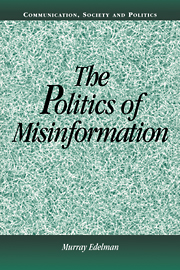2 - Social Change
Published online by Cambridge University Press: 05 June 2012
Summary
Oppressed by the cold, he fell to thinking that just such a wind as this had blown in the days of Ivan the Terrible and Peter the Great, and in those days men suffered from the same terrible poverty and hunger; they had the same thatched roofs filled with holes; there was the same wretchedness, ignorance, and desolation everywhere, the same darkness, the same sense of being oppressed—all these dreadful things had existed, did exist, and would continue to exist, and in a thousand years' time life would be no better. (Anton Chekhov, “The Student,” in The Image of Chekhov, New York: Knopf, 1967, p. 20)
Basic to the exercise of power is the ability to retain that power in spite of actions and events that might give the ruled reason to make changes.
It is fashionable to exalt change, and aspirants for public office win votes and support by claiming they will change institutions for the better. Modern society often needs change badly to end unjustifiable inequalities. But established institutions ensure that change will be minimal and superficial. The term “change” is exceptionally ambiguous. Its connotations make it possible to claim there is change when the basic institutions and stabilities have been reinforced while only superficial policies have been altered. Conversely, actions that entail substantial change can be seen as continuation of a tradition and those that entail virtually no change at all can readily be labeled “radical,” “revolutionary,” or “historic.”
- Type
- Chapter
- Information
- The Politics of Misinformation , pp. 18 - 38Publisher: Cambridge University PressPrint publication year: 2001



